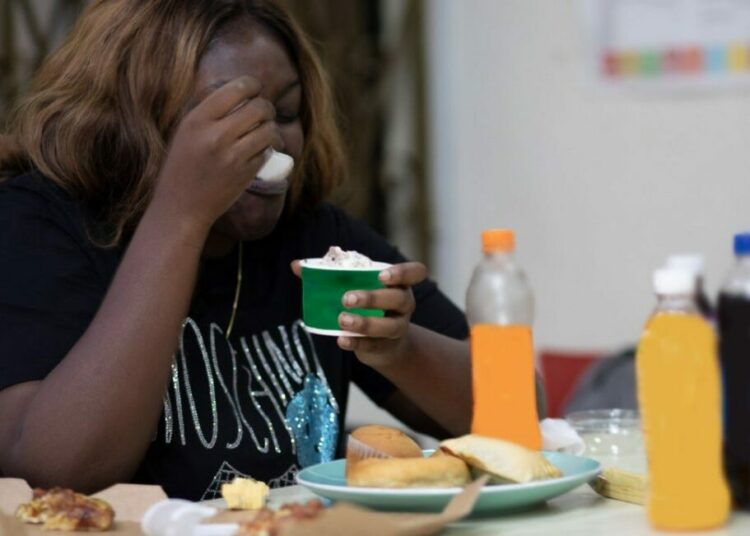Obesity was once considered a “Western problem,” but today it is knocking at Nigeria’s door, and not politely. In Lagos, Abuja, and Port Harcourt, it is now common to see children gulping down fizzy drinks on their way to school, young adults skipping breakfast for meat pies and energy drinks, and office workers glued to chairs for eight straight hours. The waistlines tell the story.
According to the World Health Organization (WHO), obesity has nearly tripled globally since 1975, and Nigeria is no exception. A 2020 National Health Survey found that about 29% of Nigerian adults are either overweight or obese, with urban women being disproportionately affected. Urban Nigeria is living on the fast lane, fast food, fast work, fast stress, and the consequences are slow but sure: hypertension, type 2 diabetes, heart disease, and even cancers linked to obesity. It feels like a faster life versus a declining health.
Meanwhile, rural Nigeria tells a different story. In villages across Benue, Ebonyi, or Adamawa, many households still depend on subsistence farming. Diets are heavier in yam, beans, maize, vegetables, and fish. Physical activity is embedded in daily living, farming, fetching water, walking long distances. Obesity rates are significantly lower. The urban–rural divide paints a picture of how modernization, if unchecked, can breed silent health epidemics.
Urban life promises convenience, but it comes at a cost. Studies in BMC Public Health (2021) show that city residents in Nigeria consume up to two times more processed foods than their rural counterparts. Instant noodles, bread, fried snacks, and sugary beverages are affordable and accessible, while fresh fruits and vegetables are either overpriced or unavailable. Add to this the grind of long commuting hours, and exercise becomes a luxury many cannot afford.
The irony is striking. Urban dwellers may appear wealthier, but their health choices often make them poorer in the long run. The silent weight gain creeps in, and before long, a 35-year-old banker is on daily blood pressure medication, a story becoming all too common in Nigeria’s cities.
In Nigerian culture, “flesh” was once seen as a sign of prosperity. A plump body meant you were well-fed, successful, and not suffering from poverty. But in today’s reality, that perception is dangerous. The WHO Africa Regional Office has warned that Africa is facing a “double burden of malnutrition” undernutrition in poor rural areas, and overweight/obesity in wealthier urban zones. Nigeria, with its 200 million citizens, is now a textbook example of this paradox.
One of the most worrying trends is childhood obesity. The UNICEF/WHO/World Bank Joint Child Malnutrition Estimates (2023) revealed that about 8% of Nigerian school-aged children are overweight, a sharp rise from just a decade ago. The culprits are clear: high consumption of sugary drinks, processed snacks marketed directly to children, and a lack of safe play spaces in cities. A generation is growing up more indoors, more online, and more overweight than their parents.
Rural Foodways: A Model We Risk Losing
In contrast, rural communities still model healthier foodways. Freshly pounded yam with vegetable soup, roasted maize, groundnut, and fish provide balanced nutrition. Meals are less processed, and lifestyles remain more physically demanding. But modernization is slowly creeping in. Instant noodles and soft drinks have reached even the most remote kiosks. Unless awareness is raised, rural Nigeria may soon follow the urban path of rising waistlines.
What Can Be Done?
The government can take cues from countries that have introduced taxes on sugary drinks, restricted junk food advertising to children, and promoted active commuting like walking and cycling.
Second, schools must be at the forefront. School meal programs should prioritize local, nutrient-rich foods. Physical activity should be compulsory, not optional.
Third, Nigerians themselves must rethink lifestyle choices. Drinking water instead of soda, cooking at home instead of constant fast food, and walking short distances rather than taking cabs are simple but powerful steps.
Finally, we must normalize our Nigerian staples. Yam, beans, millet, plantain, groundnut soup, these are not just cultural foods, they are nutrition powerhouses. Nigeria is blessed with arable lands and a rich agricultural heritage; returning to these foods might be the lifeline to fighting obesity.
Obesity in Nigeria is not just about waistlines; it is about lifelines. If left unchecked, the rising numbers will overwhelm our already strained healthcare system. But the solution is not far away. It lies in our plates, our habits, and our communities.
We must act now because while weight can be gained slowly, the health costs hit suddenly. A heart attack, a stroke, a life cut short. Prevention, as always, is the best cure.





